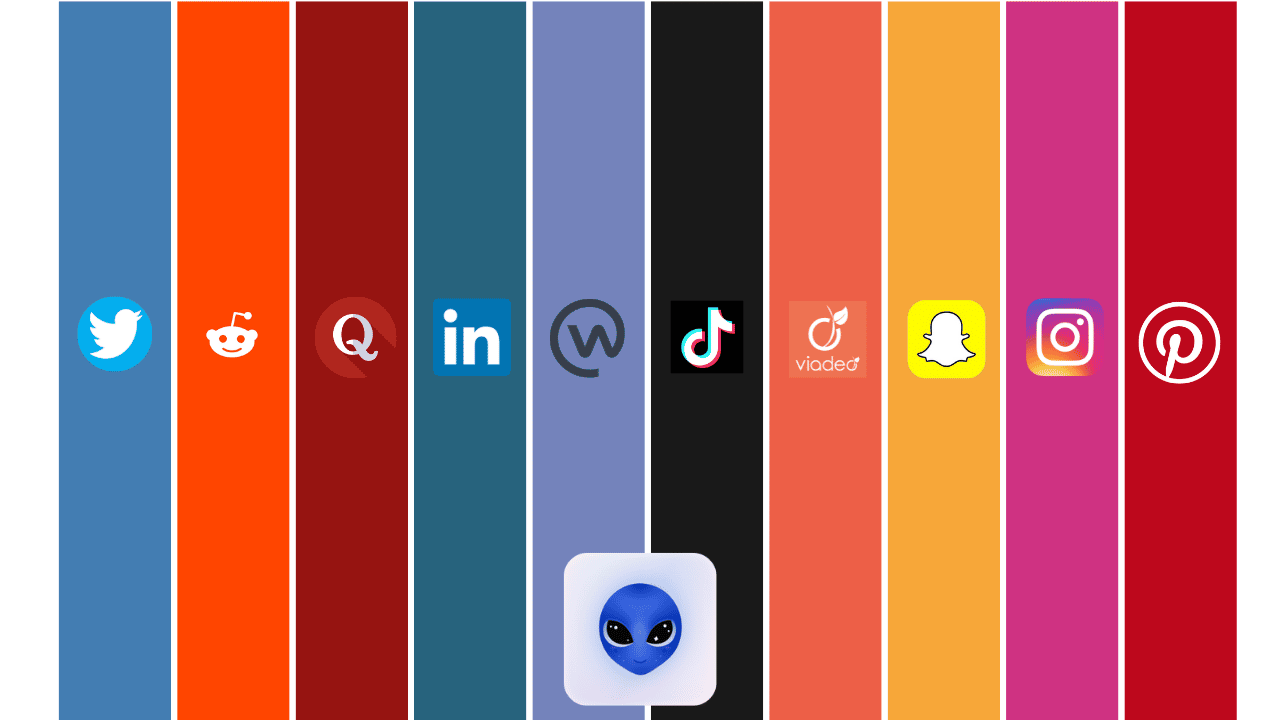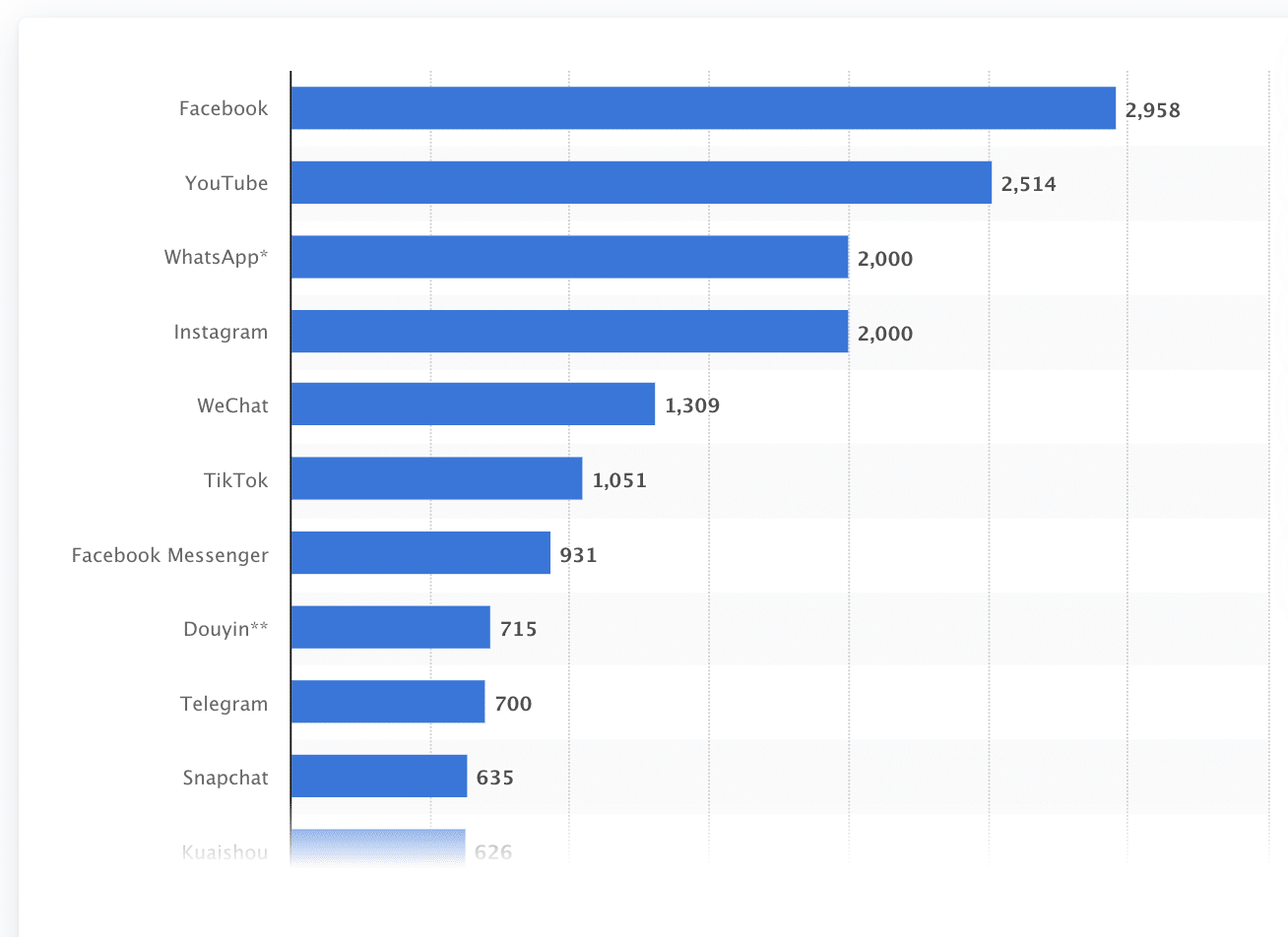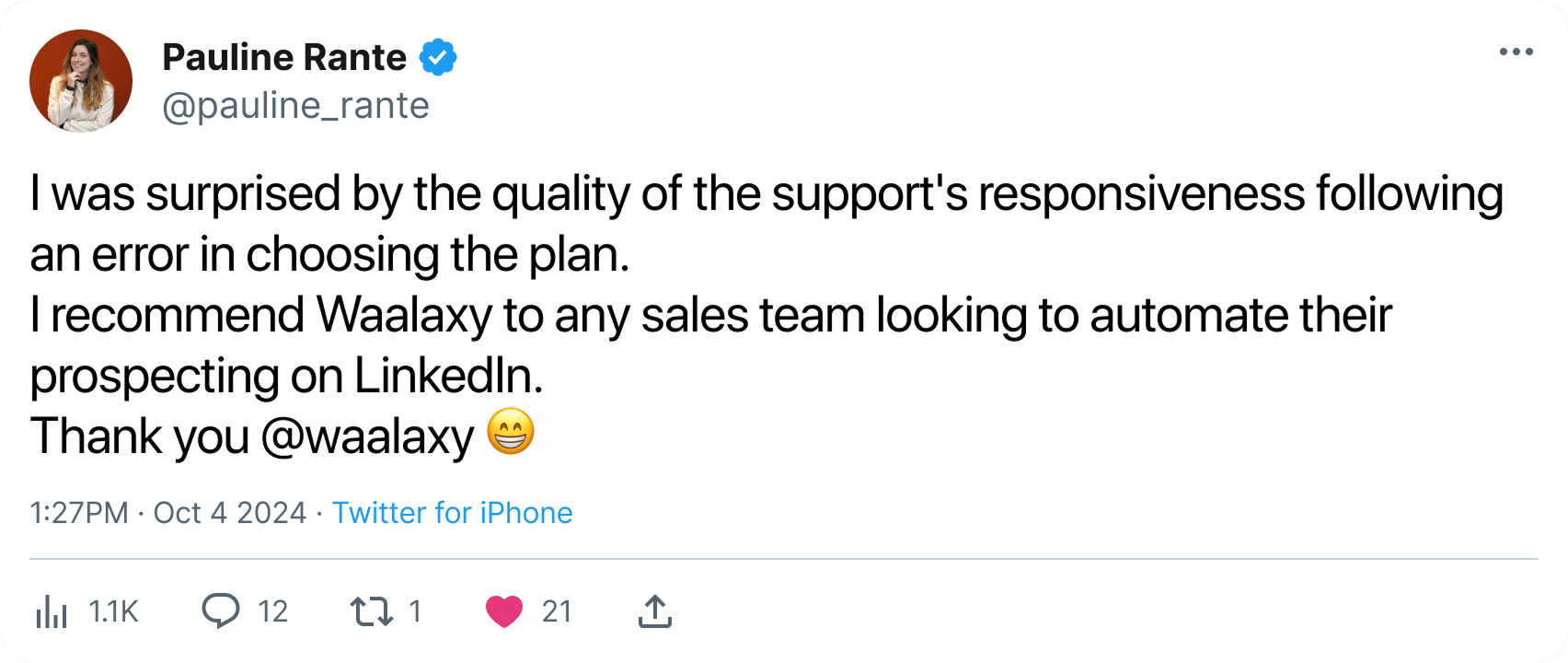Social media has become an integral part of any good marketing strategy . 🎯 However, we need to understand their advantages and disadvantages to make the best use of them . What exactly are social networks for? And why use them ? Definition of social network here . ⚡
Definition of a Social Network
A social network is defined as a communication and exchange network that allows you to keep in touch with people you know and make new contacts. 🤝
Social media or social networks (in French) are websites that allow you to interact with your network of friends, acquaintances, colleagues, strangers, etc. 😉
They offer various options for publishing “posts” and sharing photos, videos, polls, etc . Communication on these platforms can take place on public or private pages , as well as groups or direct messages . 📩
Membership and use of these interfaces are generally free . 💸 All you have to do is sign up to the social networks of your choice and create an account. 🌠

What’s more , social media can be used for personal or professional purposes , depending on the purpose . 🔍
Although they are most popular with young people, they are gradually spreading to all generations, regardless of age or gender. 🌈
The major social media are mainly aimed at the public , such as Facebook, Twitter, and Instagram . However, there are other professional social networks such as LinkedIn and Viadeo , which are platforms designed for business exchanges. 💼
Their success with professionals can be explained by the fact that they are genuine marketing and advertising media, with solutions in their own right, such as LinkedIn Ads. 👀
Various uses are common on these professional networks, such as promoting new products or events, and providing BtoB services.
What are the main types of social media?
The main types of social media are: ⏬
- Social media for sharing : used to share any type of content publicly or on your private network (photos, videos, music, etc.) .
- Social media for networking : used to create and develop networks . For example , LinkedIn and Viadeo can be used to create professional social networks . They are therefore very useful for your B2B activities .
- Messaging social media : used for immediate or informal discussions between members. The best known of these are probably Zoom and Discord . Forums are also used for discussion .
- Publishing social media : used to publish original content , articles, reports, tests, etc . This is essentially a blogging platform such as WordPress, Blogspot, etc .
- Collaborative social media : Social media such as Slack allow you to collaborate remotely with your teams. They are used in particular for project management .
List of social networks used worldwide
As we said earlier, there are several types of social network, and to illustrate our point, we’re going to list 10 social networks classified according to their type. ⬇️
1) Professional social networks
Professional social networks include
- 🔹 LinkedIn: for individuals and businesses, allowing you to build a professional network, search for jobs, share articles and company updates.
- 🔸 Viadeo: mainly used in France, but also in other French-speaking countries, this is a social network where you can exchange and share information.
2) Image of social networks
There are, of course
- 🟣 Instagram: based on sharing photos and videos, where users can add filters and hashtags to increase their reach.
- 🔴 Pinterest: based on a library of photos and videos, allowing users to create inspiration boards for various topics.
- 🟡 Snapchat: ephemeral messaging where users can send photos and videos that disappear after being viewed.
- 🔵 Flickr: users can also share their photographs
3) Microblogging social networks
As far as microblogging networks are concerned, we have
- 🩵 Twitter: users can publish short messages of up to 280 characters, also known as “tweets” 🕊️, and follow other users’ updates.
- 🖤 Tumblr: allows users to publish multimedia content and follow other blogs.
- ❓ Quora: allows users to create and organize questions and answers.
- 🤖 Reddit: community discussion and social news site.
4) Video social networks
Finally, we have video social media
- 🟥 YouTube: a video-sharing platform owned by Google, offering a wide variety of content created by users and businesses.
- ⏹️ Vimeo: based on sharing and viewing videos.
- ⬛️ TikTok: sharing of short videos, often based on popular trends and challenges.
Definition of a Social Network
What are the most important social networks/media?

Why use social networks in marketing?
“Why?” 🤔 it’s a question we often ask ourselves, especially when it comes to something we’re not familiar with . .. However, using social media is essential!
Currently , marketing strategies that don’t incorporate social media can’t be considered optimal. 🚫
If you’re wondering what social networks can do for you, 👀 here are seven reasons why you should incorporate them into your communication plan
- Social media can increase awareness and visibility.
- Social media can improve your SEO. The more links there are to your site pages, the better it will rank in search engines .
(For more info, read this article on SEO strategy) . - Social media can help you get more traffic, i.e., more visitors to your e-commerce site, for example.
- Social media can help you find potential customers and partners.
- Social media can help you improve customer relations .
- Social media enables you to improve your e-reputation.
- Social media allows you to constantly monitor the market .
We have also prepared a specific article on the advantages and disadvantages of social networks, which you should consult. 😉
What are social networks used for?
We’ve looked together at the definition of social networks, the main social media and why you should use them. 🧐
However, you may be wondering what use social networks can be for your business ? Or maybe you’ve already tried something on the networks and haven’ t seen any return on investment? 😥
Don’t worry, it happens to everyone!
Getting a return on investment requires much more than a theoretical understanding of the definition of social networks and their benefits. 👀 To communicate successfully , it’s important to follow a few best practices for using networks well. 👇
Conclusion: Definition of a Social network
As such , social media are essential in the age of digital communication . 🤖
👉 Here’s a recap of the best practices we’ve seen in this article on the definition of a social network:
- Know your target audience well.
- Have a good content strategy .
- Choosing the right social media .
- Plan your content. 🗓️
However, it’s important to take the time to develop a comprehensive strategy and use social media effectively to achieve the goals you’ve set yourself for developing your business . 🏹
If you don ‘t have a defined strategy, you risk wasting the resources you mobilize to manage your communication. 🙊 This can have a negative impact on your brand image or even your “personal branding”.
As you know, social networks have a lot of power 🙏 but you have to know how to use them wisely!
FAQ : Definition of a Social Network
What is a social network?
A social network is a website or mobile application that allows users to create networks of friends or subscribers and facilitates social interaction between individuals, groups, or organizations . Social networks belong to the social media family . 🌐
What purpose does a social network serve for a business?
The purpose of a social network for a business is: to increase brand awareness , drive traffic to their website , target and convert potential customers , build customer loyalty and communicate with existing customers via newsletters, transactional emails , etc. 🧨
For purely professional purposes , it is advisable to use LinkedIn . For example, if you’re a jobseeker, you can put your CV and consult job offers directly on this platform. This way, you can contact companies more easily and vice versa. 😃
What is the main purpose of a social network?
A social network is a communication channel that will enable you to maintain links with your friends, family but also with your customers or potential leads. Its aim is for you to share moments, photos, videos, or messages that you want to pass on.
What is the difference between social media and social networks?
There is a subtle difference between the two, and many people , even those in the know, tend to confuse the two terms . Social networks are just one part of social media . 🤓 F or example , LinkedIn or even this blog, are social media.
There, now you know the definition of a social network! 😘













